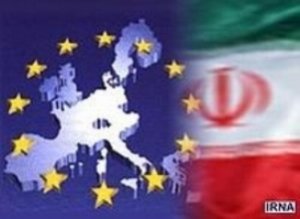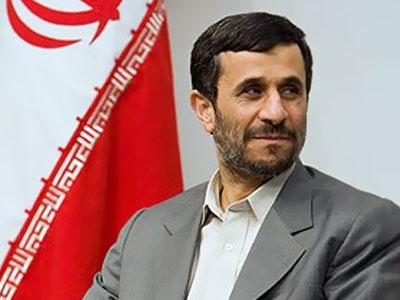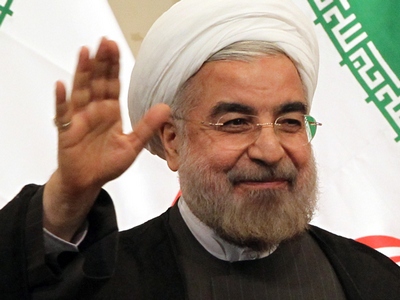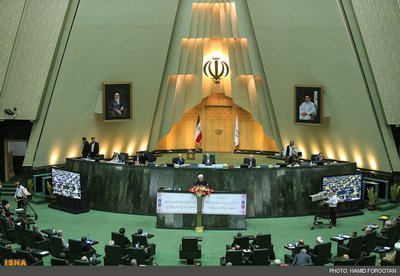 17.02.2014
17.02.2014EUROPE'S ROLE IN RESOLVING THE IRANIAN PROBLEM
 Vladimir Yevseyev
Vladimir Yevseyev
Especially for Iran.ru
14 January, 2014
Since 2003, the Iranian nuclear issue constantly attracts the attention of the international community. In fact, it is the most serious challenge to the global regime based on fulfilling the requirements of the Treaty on the Non-Proliferation of Nuclear Weapons (NPT). In solving this problem the International Atomic Energy Agency (IAEA) and the UN Security Council are actively involved. The process of relations between these organizations and the Islamic Republic of Iran (IRI) was quite contradictory. After the relative success of 2003-2004 a period of protracted crisis came. As a result, the UN Security Council adopted six resolutions on the Iranian nuclear issue, four of which have imposed Iranian political, financial and economic sanctions. Similar actions have been taken unilaterally and multilaterally. As a result, Iran was in serious political and economic isolation, but nevertheless, it did not lead to the resolution of the nuclear crisis.
European countries almost immediately became involved in the Iranian nuclear issue. Initially, the “big three” of the European Union (EU), including UK, France and Germany, has made significant progress. They managed to convince Tehran to full cooperation with the IAEA, the signing of the Additional Protocol (1997) to the Agreement with the IAEA safeguards and to the fulfillment of its requirements before the completion of the ratification process, as well as the suspension of all uranium enrichment, reprocessing of irradiated (spent) nuclear fuel and plutonium. In exchange, the EU has offered Iran a large-scale economic cooperation.
 Negotiation process with the “big three” of the EU was very difficult and slow. Nevertheless, in Septe mber 2004, under the control of the IAEA was put uranium conversion facility in Isfahan, and in November of the same year the so-called Paris Agreement on the establishment of confidence-building measures in respect peaceful nature of Iran’s nuclear program was signed between Iran and the EU. It was the culmination of success of the European Union, followed by lengthy and fruitless attempts to “big three” of the EU to stop the escalation of the nuclear crisis. One reason for this was that if the U.S. were not ready for multilateral discussion with Tehran's nuclear problem. On the other hand, coming to power in 2005 of a neo-conservative Mahmoud Ahmadinejad of Iran made the Iranian position too rigid.
Negotiation process with the “big three” of the EU was very difficult and slow. Nevertheless, in Septe mber 2004, under the control of the IAEA was put uranium conversion facility in Isfahan, and in November of the same year the so-called Paris Agreement on the establishment of confidence-building measures in respect peaceful nature of Iran’s nuclear program was signed between Iran and the EU. It was the culmination of success of the European Union, followed by lengthy and fruitless attempts to “big three” of the EU to stop the escalation of the nuclear crisis. One reason for this was that if the U.S. were not ready for multilateral discussion with Tehran's nuclear problem. On the other hand, coming to power in 2005 of a neo-conservative Mahmoud Ahmadinejad of Iran made the Iranian position too rigid.
The result was a stalemate - on the one hand, Iran has made in terms of Tehran, is certainly not acceptable offer, which he could not respond positively, and on the other - he offered not always acceptable to Western ways of solving problems. Thereafter with respect to Iran sanctions were adopted by the UN Security Council, and all went again. And even changing the format of the six-party talks on the first (permanent members of the UN Security Council and Germany), and then seven-party talks involving Iran has not allowed to change the situation fundamentally because of the reluctance of both Tehran and the West to make compromise.
Unlike the United States, some European countries until recently depended on Iranian oil supplies and had significant turnover with IRI. This for a long time kept the EU from taking on Tehran serious measures. However, with the deepening of the Iranian nuclear crisis, there was a real threat to overlap of the Strait of Hormuz, at which supplies 20% of world traffic (40% of the maritime transport of oil), and significant amounts of liquefied natural gas. Given this, in July 2010, the EU introduced the first, and in October of the same year significantly tightened political and economic and financial sanctions against Iran, far beyond the latest UN Security Council resolution. As they are implemented, as well as the introduction of these overly harsh sanctions from the U.S., Canada and some other countries not only significantly reduced Iran's oil exports, but Iranian banking sector virtually appeared to be locked and, which made extremely difficult for the country to conduct of trade relations and obtaining foreign investment.
 All this has led to a substantial reduction of trade-economic indicators and, consequently, to a drop in living standards. In 2013 during the presidential elections in Iran in the first round defeated moderate conservative Hassan Rouhani. This happened because the Iranians supported his proposed course for a significant improvement in the economic situation of the country by the normalization of relations with the West on the basis of a mutually acceptable compromise, including in the nuclear sphere. The result of the new course of Iran was that there has been clear progress in improving US-Iranian relations. Logical continuation of this process was that on November 24, 2013 in Geneva interim agreement as a “Joint Action Plan” was signed between the representatives of Iran and “six” of international mediators to resolve the Iranian nuclear issue, which defined both priority, and the final steps of the parties to resolve the problem.
All this has led to a substantial reduction of trade-economic indicators and, consequently, to a drop in living standards. In 2013 during the presidential elections in Iran in the first round defeated moderate conservative Hassan Rouhani. This happened because the Iranians supported his proposed course for a significant improvement in the economic situation of the country by the normalization of relations with the West on the basis of a mutually acceptable compromise, including in the nuclear sphere. The result of the new course of Iran was that there has been clear progress in improving US-Iranian relations. Logical continuation of this process was that on November 24, 2013 in Geneva interim agreement as a “Joint Action Plan” was signed between the representatives of Iran and “six” of international mediators to resolve the Iranian nuclear issue, which defined both priority, and the final steps of the parties to resolve the problem.
Adoption of the “Joint Action Plan” has not led to a strategic breakthrough in resolving the Iranian nuclear crisis. This is more a tactical success, as the document is not based on the principle of the Russian “gradualism and reciprocity” because, for example, the lack of appropriate “road map”. In fact, it is the ultimatum which was accepted by Iran. The reason for this step was that it was necessary to weaken extremely painful financial and economic sanctions imposed by the West. As a result, Tehran has accepted stringent requirements, especially with regard to monitoring Iran’s nuclear facilities, but was able to defend its legitimate right to enrich uranium as a state - a member of the NPT.
It should be noted that the preparation of the “Joint Action Plan” Europe either showed excessive passivity or prevented its signing represented by France. That is why an agreement on the nuclear issue is more bilateral (US - Iranian) under Russian mediation character. In such circumstances, it was impossible to mitigate against Iran most severe financial and economic sanctions on the export of Iranian oil and gas, banking and insurance of marine cargo transportation that is fully consistent with the interests of European states.

**************
On January 9 this year, Iran and representatives of the “six”, a group of international negotiators reached an agreement on the first phase of a joint action plan to which the parties joined on November 24 in Geneva. In fact, without these agreements, it is impossible to implement the “Joint Action Plan” of Iran and the “six” of mediators, which will be carried out since January 20. And in these difficult conditions, the role of the European states has extremely increased, particularly involved in the negotiation process. They are obliged to take the initiative and not only require the implementation of immediate steps to resolve the Iranian nuclear issue, but also insist on the need for further easing and removal of financial and economic sanctions (collective and one-sided) with the aim of substantially improving regional security and restore broken relationships with Tehran, in almost all areas.
Return
